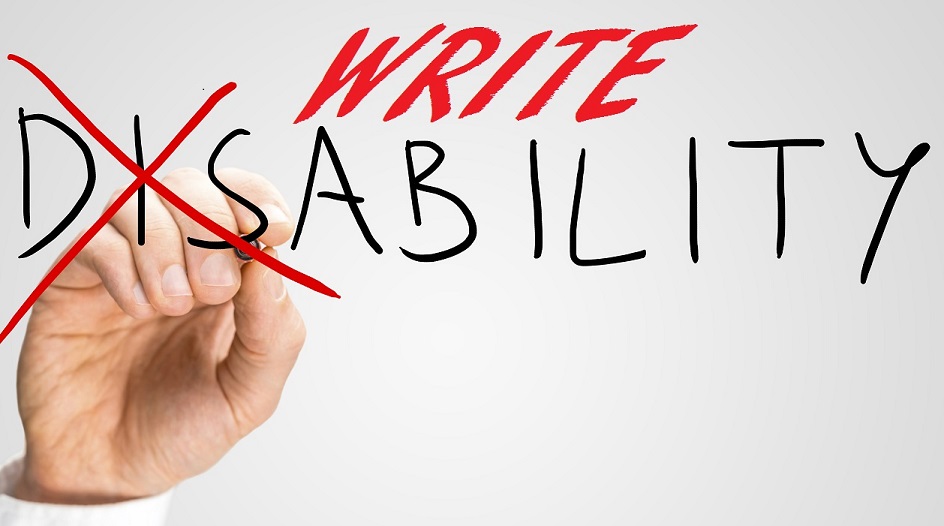Recently, I was asked by a fellow writer to work with him on a project. Admittedly, I was pretty unfamiliar with the subject matter of the assignment. But, I was excited about the opportunity to work with another writer and possibly learn something new.
However, it wasn’t long before that excitement turned into dread. After spending hours sitting in my creative workspace staring at a monitor bursting with information, I was unable to parlay the information into a cognitive summarization which would motivate others to care about what I obviously didn’t.
Once I realized this, I began to feel bad about having to back out of my commitment. Until I remembered a lesson I learned years ago when I first became disabled. It’s a truth that not many people are able to admit and it has become a principal I live via my personal and creative lives.
It is okay to say you are not able to do something, for whatever reason (physical, mentally, financially and emotionally). Sure, the world and my faith tell me to never give up and I can do anything.
But, over the years I’ve come to learn this is a fictional lie and I can’t accept it, I’m at peace with that. You see everything about me, including what I don’t know and can’t do is what makes me Martin Thomas Johnson.
If I spent my life doing what everybody else can and wants to do, then I’m not being authentic to myself and who I’m meant to be. Speaker and author Mike Foster says it best, “Embrace it all. Every flaw and imperfection. Every wound and broken place. Everything belongs in the story of you.” Do what you are able to and don’t worry about what you are not.
Able?
Webster’s defines able as, “Having the power, skill, money, etc. that is needed to do something.” Being disabled has taught me to understand better what I am able to do. I don’t like putting on façades.
This vulnerability and transparency has drastically shaped my writing style. It’s given me my writing voice and a connection to my audience. I learned quickly after my accident that I was different from who I used to be.
I remember falling off of the toilet after lying to the nurse about being able to walk. To say I was humbled would be an understatement. It was devastating for 22-year-old man to be unable to do basic things for himself. It wasn’t until a month later when I entered a rehabilitation hospital to relearn basic functions (smiling, eating, and walking) that I realized I wasn’t alone in being broken, suffering.
I remember watching another patient who was younger than I struggling to get out of his wheelchair so that a nurse could help with his bath. At one point we locked eyes and I could feel his shame and embarrassment. Although he couldn’t even talk, I understood it was taking every ounce of his strength to attempt to do what he was no longer able to. He couldn’t fake it if he wanted to.
Fake?
Just in case there are some reading this who believe you can do enough research and write anything–think again. Research can be fun and informative. But, there are people who know more about what you are researching and even those who don’t can tell when you’re faking it. For fiction it works, but I write mainly nonfiction and someone who knows more about a subject can easily spot my lack of expertise.
Take for example sports; although I am a fitness fanatic, when it comes to more popular sports like football, basketball and baseball, I’m clueless.
I grew up playing sports like soccer, volleyball and tennis and living in the deep South that really makes me different, if I were to try to write about any of the previous sports; people would know immediately that I have no idea what I’m writing about. So I choose to stick with what I know.
In closing I’ll quote Dirty Harry, “A man’s got to know his limitations.” Write what you know about. Regardless of how much research or brainstorming you do, you just may not be able.
About Martin Johnson
Martin Johnson survived a severe car accident with a (T.B.I.) Truamatic brain injury which left him legally blind and partially paralyzed on the left side. He is an award-winning Christian screenwriter who has recently finished his first Christian nonfiction book. Martin has spent the last nine years volunteering as an ambassador and promoter for Promise Keepers ministries. While speaking to local men’s ministries he shares his testimony. He explains The Jesus Paradigm and how following Jesus changes what matters most in our lives. Martin lives in a Georgia and connects with readers at Spiritual Perspectives of Da Single Guy and on Twitter at mtjohnson51.




 We love helping your growing in your writing career.
We love helping your growing in your writing career.

3 Comments
Thanks for sharing your perspective, Martin. I try to push my limits, but those limits move very slowly. We can’t achieve great things through willpower alone. Change happens incrementally through learning and self-discipline. I really enjoy your column.
Really good points, Martin. While we want to stretch ourselves as writers, you make a great case for being able to put words and thoughts to just any project. I’ve found that if my heart is not in it, it never turns out well whether with writing or other areas in life. Thanks for this insightful post.
SO | MUCH | YES!!! for exactly the reasons you stated!! Father showed me not too long ago that that little verse that says, “I can do all things…” means all the “things” He gives us to do – not all the “other” things, too!
i, too, am disabled, and have had to learn that i.just.can’t. some days more so than others – and ever’body else just gonna have to deal! LOL